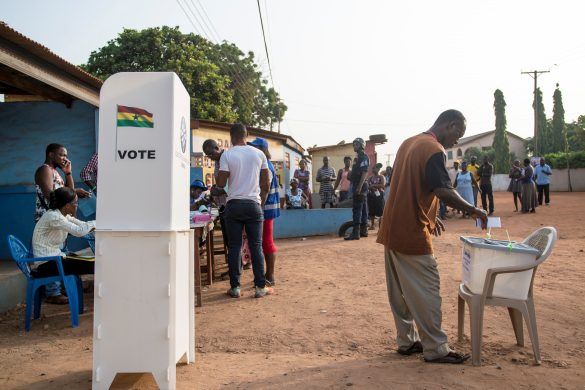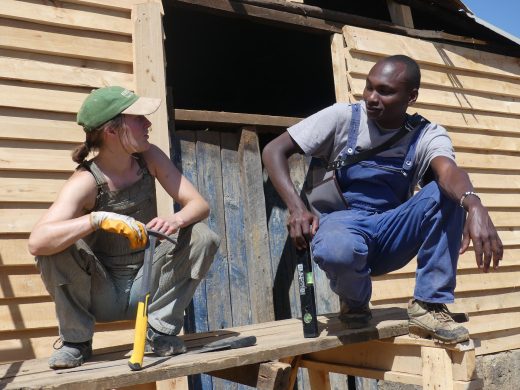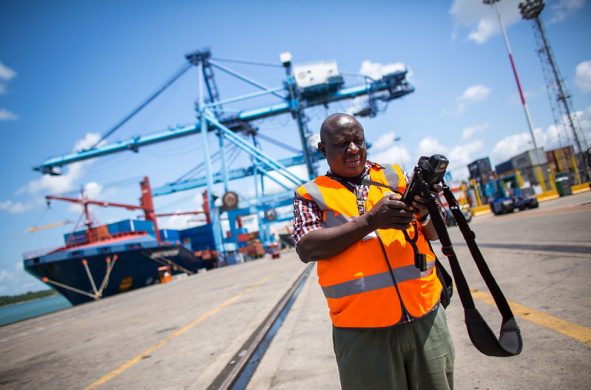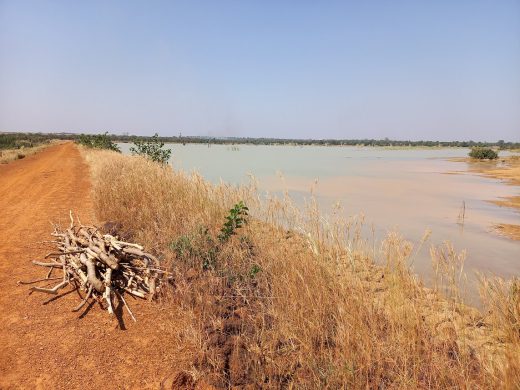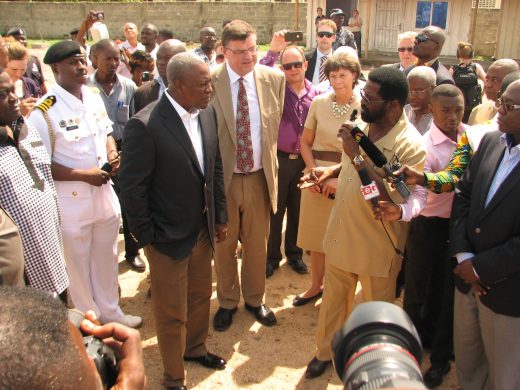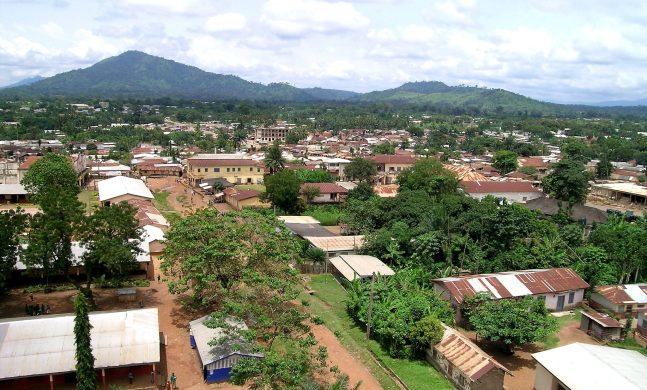FAO, IFAD and WFP executive heads in joint visit to northern Ghana – Joint visit highlights field level cooperation
Accra/Rome, 5 December: Amid growing calls for reform and coherence (sammenhæng) among United Nations partners, the heads of the three Rome-based food and agriculture agencies demonstrated their determination to strengthen joint efforts to reduce hunger and poverty at the grassroots level by visiting Ghanas food insecure Northern Region this week.
While in Ghana, the Food and Agriculture Organization (FAO), the International Fund for Agricultural Development (IFAD) and the World Food Programme (WFP) reviewed joint initiatives in support of the Governments efforts to attain food security for the countrys entire population.
– These initiatives include the Special Programme for Food Security, to be upscaled to a national programme, and farmers field schools, with strategies and programmes to ensure that investment is targeted towards the food and agriculture sectors, said FAO Director-General, Dr Jacques Diouf during the joint visit to development projects in the Northern Region.
– With the right political will, there will be many success stories in Africa. I think that we have to learn from the success story of Ghana, Dr Diouf said.
Ghana, with a population of 21 million people, is among the first countries in sub-Saharan Africa to have reached and even surpassed the 1996 World Food Summit goal of reducing by half the number of undernourished people by 2015.
Between 1990-92 and 2001-2003, the number of hungry people fell from 5,8 to 2,4 million – a 59 percent reduction. However, pockets of food insecurity remain in certain areas, including the Northern Region around Tamale, visited by the three UN leaders.
FAO, IFAD and WFP share the vision of building a food-secure country through a twin-track approach: provision in the short term of assistance to hungry households to meet their education, health, and nutrition needs and building medium and long term sustainable livelihoods through agricultural and rural development.
The news is less positive for many other countries in the sub-region, home to about one third of the worlds chronically hungry.
– The impact of hunger and malnutrition takes its most severe toll on children,” said WFP Executive Director James Morris, adding:
– The greatest nutritional impact can be achieved by integrating school feeding programmes with early child survival and development interventions. We commend Ghanas commitment to launch a national school feeding programme and to sustain the WFP-supported early childhood nutrition and education programmes, using local production, which stimulate local production and markets for Ghanas farmers, many of whom are food insecure.
Three quarters of the worlds 1,1 billion extremely poor people live in rural areas and depend on agriculture and related activities for their survival.
– Investing in agriculture and rural development can not only boost the standard of living for poor rural women, children and men, but can spur economic growth for an entire region, said (Swedish national) Lennart Båge, President of IFAD.
– Rural poverty programmes can also contribute to the effectiveness of other organizations that support education, health, governance and other services, he concluded.
A common strategic approach
Areas of collaboration by the three agencies include:
– supporting local development and governance, and also women’s groups;
– providing support to the Ghana School Feeding Programme to improve nutrition and education using food produced locally by school and family gardens and smallholder farmers;
– ensuring sustainable food production, in particular of cereals, roots and tubers, that make a growing contribution to national food security;
– improving agriculture and water related infrastructure for the development of small scale irrigation and pro-poor rural enterprise;
– promoting, through the International Alliance against Hunger, an initiative of the three Rome-based organizations and their partners, a Ghanaian National Alliance against Hunger.
The purpose is to raise awareness about poverty reduction and food security by different groups, including the media, the private sector, civil society, academic and local organizations.
Kilde: www.fao.org/newsroom/







